The Chevy Volt is kicking gas and tacking names; names of new customers, that is. Sure, the extended range EV isn’t selling in monstrously high volumes (just yet), but it’s bringing new customers to Chevrolet by the dozen.
Consider this: the Toyota Prius, Toyota Camry, Honda Civic, and BMW 3 Series are the vehicles most often traded in by Volt buyers. Not only that, but about 7 in 10 Volt buyers are new to Chevy.
“I owned a Prius for six years and loved it. I was one of the first to sign-up for the plug-in (version),” said Steve Glenn of Santa Monica, California. “While I was waiting for it to ship, I learned that the Volt would qualify for the HOV stickers, so I did a test drive. I fell in love then. It’s faster, better appointed and gets far better gas mileage than the Prius (or the plug-in). I’ve driven it over 1,000 miles and I’ve only used five gallons of gas.”
Not only is the Volt attracting customers who may not have considered a Chevrolet vehicle in years, but Volt owners are also extremely satisfied with the vehicle — with 93 percent stating that they would buy the car again.
“With new customers coming to the brand because of the Volt, our dealers have a great opportunity to establish lasting relationships and introduce them to our entire Chevrolet product line up”, said Volt marketing manager Cristi Landy.
The GM Authority Take
We already knew that the Volt is an excellent vehicle — and these highly positive statistics don’t surprise us in the least. In fact, they mirror the very favorable numbers seen by the reborn Buick brand, as well. Now if only more car buyers would open their eyes to the innovative vehicle that is the Volt, maybe then it would see significantly higher monthly sales figures… in time.

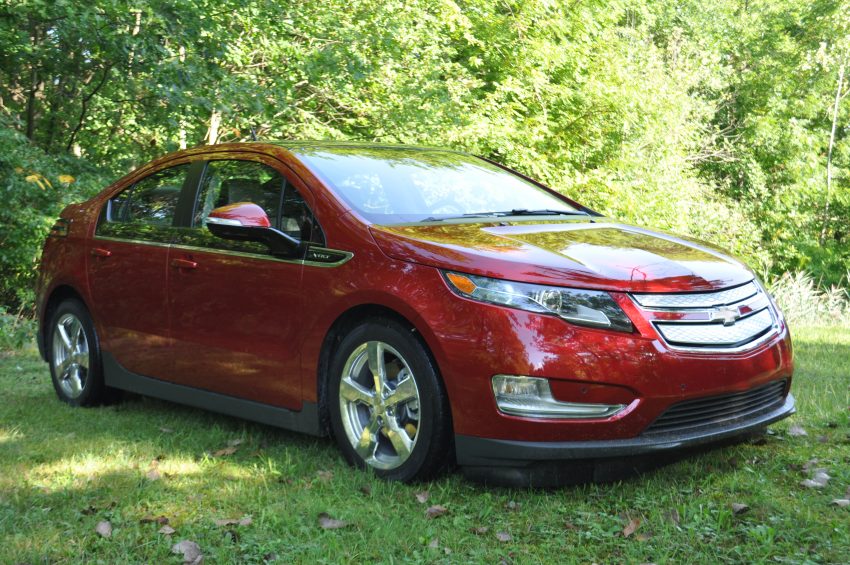


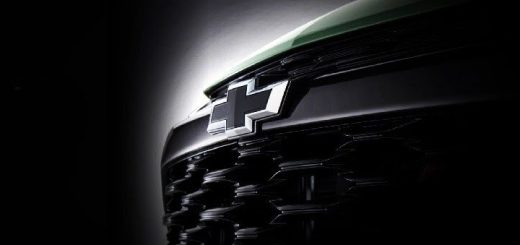

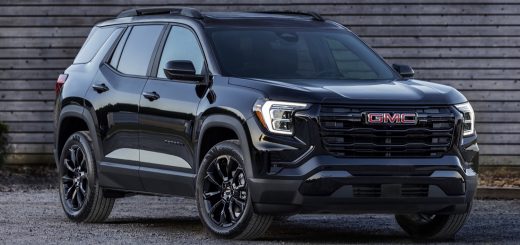
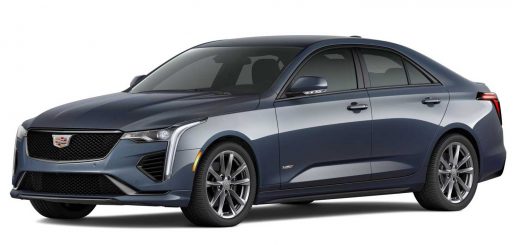
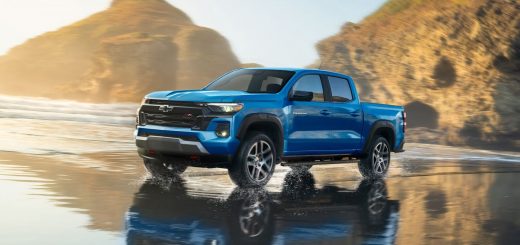
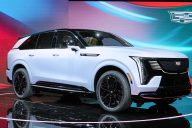





Comments
I’m just waiting for someone to make a remark about the Obama administration about this vehicle.
For as much of a GM fan as I am, and as much as I really want to like the Volt, I just can’t. Sure, you may only use 5 gallons of gas in 1000 miles of driving, but that’s not the whole picture. What is the cost of the electricity used vs. the gasoline that would have been used, on say a 42 mpg Cruze Eco at $3.50/gallon? I don’t know this, but I have seen various calulations that all seem to say the cost of running on electricity is more per mile than gas. Even if the cost is less, you still have many years of driving to overcome the higher purchase price just to break even. I’m not trying to be down on the Volt specifically, I feel this way about all electric vehicles.
The price will come down with time, just as it did with the Prius. But the point is that electricity can be sourced from renewable and sustainable energy sources, unlike gasoline.
Other than that, where in the world is electricity more expensive than gas?
Someone else can quote the numbers, but right now natural gas is real cheap in this country. NG can fire a power plant much easier than a car. And there is, of course, coal, wind, nuclear, etc. that can work at a power plant.
For an electric vehicle, the fuel cost is essentially coming from a very cheap fuel. There is very little energy loss in transferring energy from the battery to the road, so what we’re comparing here is the efficiency of a power plant versus the efficiency of an internal combustion engine in a car. I think the power plant wins, but the fuel prices per BTU make it a BIG win. There are some losses in transporting the electricity to your house over wire, but that is small compared to the conversion in your engine to the wheels, or the conversion of fuel in the power plant to electricity.
The internal combustion engine would do better if it could run on something less refined. A power plant has the advantage again because it can use something cheap like heavy fuel oil and then just scrub the gases after the combustion of it.
Chris, I had the same thought as you when the Volt first came out, but when you think about it, electric vehicles make a lot of sense. The batteries just need to get better. About 30 years ago before I became a chemical engineer I told people that my vision for solving the energy crisis was to use cars with batteries and transport power to them from nuclear power plants over superconducting wire. (That eliminates the transportation energy loss over the wire.) Nuclear has suffered a recent set back, and I’m not sure if such wire is practical per my vision, but I still stand behind nuclear as being the only real practical way of growing energy without destroying the atmosphere. I’d rather convert all that precious oil into products rather than just burn it as well.
So, as you can see, this is the reason I am such a strong proponent on this board of small, efficient, vehicles that offer utility — cars that GM does not seem to want to make.
Two negatives about the Volt
1: its shaped like an Aztec
2: unlike the Prius it’s not subsidized If it could sticker in the $ 30k range
Other than that it’s brilliant
If the Volt is shaped like the Aztek, then it’s an Aztek I’d love to own. Seriously though… no resemblance in my book.
None whatsoever…
It was seeing the rear 3/4 view of one yesterday that out that idea in my head.
I am assuming that most of us live in Michigan and most likely have DTE Energy. Here is their website to calculate energy consumption for electric vehicles. The difference between the cost of gas and that of electricity is quite substantial.
http://www.dteenergy.com/residentialCustomers/productsPrograms/electricVehicles/eVCalculator.html
Chris, you need to grab a pencil or calculator and do the math yourself instead of listening to sources that obviously have no clue what their talking about. “FixEncoreArmrest” has it exactly right.
The short answer is that the cost to drive a Volt 1000 miles on electricity is about $38. How much would it cost using YOUR daily driver to cover the same distance? Probably about $150. Nuf said.
The Volt is a great car. From here forward I’ll always own at least on vehicle with a Voltec type powertrain. It just makes so much sense.
Chris get out of the world of dilusions of grandier…
Sorry guys:
http://www.digifixpix.com/volt/volt_calc.asp
My results=
$500/month, $36,907 – 10 year cost for Volt
$358/month, $28,738 – 10 year cost for “gas” figuring $20000 purchase price/31 combined mpg Cruze Eco
http://www.fueleconomy.gov/feg/bymodel/2012_Chevrolet_Cruze.shtml
leaving in the calculator the purchase price and $7500 rebate for Volt, and $3.5/gallon for gas, which I’ve seen as low as $3.35 locally
My price per kwh is .0989, 25 mile commute 5 days per week with 1 charge per day. I put 0% in for the interest rate as I pay cash for my vehicles.
The bottom line is that while the cost of electricity IS cheaper than the cost of gas based on current prices/rates, it can’t overcome the initial purchase price over a 10 year period. Also, the numbers would be further against the Volt if you need to finance at a rate higher than 0%, or do a lot of long trips that exceed the all electric range of the Volt. So, if you are buying a Volt to reduce our dependence on foreign oil, or reduce your carbon footprint more power to you, but if you’re just looking to save money there are better options.
Better options such as?
My Malibu with the 2.4 averages better combined milage than Cruze Eco at 31 mpg.
That’s good, but all Cruzen attain better fuel economy in real life than they do on paper… at least they do in my experience.
Probably. I live in Chesterfield and work in Ann Arbor, most of the time I drive 70 mph and when heading up to the thumb where my parents live, I drive 55 mph. I don’t do a whole lot of city driving. Right now avg mpg is 36 mpg, decent in my book.
That is pretty good indeed. I remember getting a consistent 46 MPG on the highway doing 60-65 in my non-Eco 2011 Cruze, even when going up and down the mountainous I25 in Colorado. The average then plummeted to something like 24 because I thrashed it in the city… 🙂
It took a while to figure out the car and where it gets it’s best mileage. It does suffer time to time on I275, I96 and I 696 depending on the time of day that I can get out of work. When I do drive in the city, people get really PO at me because a person on a 125cc scooter could out accelerate me. I say screw em, they’re not filling my tank. I’m going to NY and DC this August, I’m excited to see if I can get my avg up higher, maybe the 38-40 mpg range.
Yeah, that will be interesting. You should post back in the forum once you make those trips — I’d be curious to know 🙂
I used to drive an S10 back in high school then went to a Grand AM GT in 2005, I thought the milage on that was awesome. Now that I have the Malibu LTZ with the 4 banger, I think my GA which I still have is horrible on gas.
I used to drive an S10 back in high school then went to a Grand AM GT in 2005, I thought the mileage on that was awesome. Now that I have the Malibu LTZ with the 4 banger, I think my GA which I still have is horrible on gas.